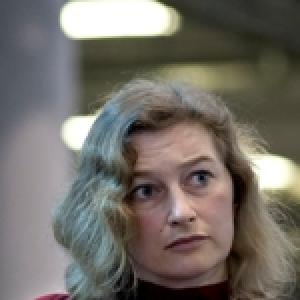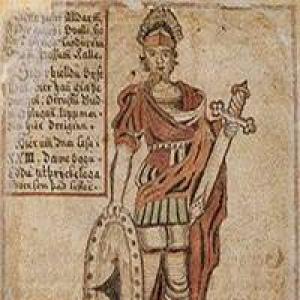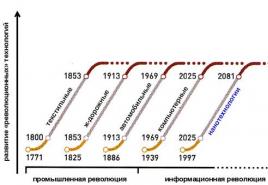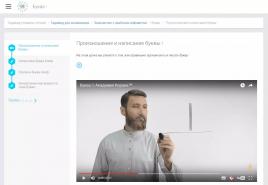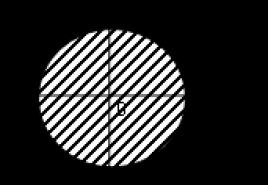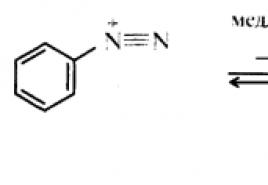Ural State Pedagogical University (USPU). Ural State Pedagogical University Ural State Pedagogical University
Studying at IPiPD is an opportunity:
DIRECTIONS OF TRAINING
| BACHELOR'S DEGREE | DOUBLE BACHELOR'S DEGREE (CORRESPONDING 2 DIPLOMA) | MASTER'S PROGRAM |
| PRIMARY EDUCATION | PRIMARY EDUCATION AND FOREIGN LANGUAGE | PRESCHOOL EDUCATION |
| PRESCHOOL EDUCATION | PRIMARY EDUCATION AND COMPUTER SCIENCE | PRIMARY EDUCATION |
| PSYCHOLOGY AND PEDAGOGY OF PRIMARY EDUCATION | DURATION OF TRAINING - 5 YEARS | |
| PSYCHOLOGY AND PEDAGOGY OF PRESCHOOL EDUCATION | PEDAGOGICAL TECHNOLOGIES FOR CREATIVITY DEVELOPMENT | |
| PRESCHOOL EDUCATION MANAGEMENT | DURATION OF TRAINING - 2 YEARS | |
| PEDAGOGY OF SPIRITUAL AND MORAL EDUCATION | ||
| DURATION OF TRAINING - 4 YEARS | ||
|
IMPROVEMENT OF QUALIFICATIONS(CERTIFICATES OF IMPROVEMENT OF QUALIFICATIONS) |
||
|
PROFESSIONAL RETRAINING(DIPLOMAS OF PROFESSIONAL RETRAINING - FROM 250 HOURS) |
||
| ADDITIONAL EDUCATION PROGRAMS FOR CHILDREN AND ADULTS | ||
DEPARTMENTS OF THE INSTITUTE:
Department of Pedagogy and Childhood Psychology
Department of Russian language and methods of teaching it in primary school
Department of Theory and Methods of Teaching Mathematics and Computer Science in Childhood
Department of Natural Science and Methods of Teaching it in Primary Schools
Department of Aesthetic Education
Department of Pedagogy

Center additional education IPiPD USPU
Teachers and specialists of primary, additional and preschool education can receive professional retraining and improve their skills by mastering additional professional programs. We also offer a variety of additional education programs for children and adults.
Duration of training for additional professional programs from 16 hours or more, for professional training - from 250 hours. Individual programs for educational institutions are being successfully implemented in accordance with development programs. Final document: certificate or diploma of the established form.
Form of education: full-time with the use of distance learning technologies.
Flexible training schedule, individual approach
WE ARE WAITING FOR YOU!
Deputy Director of IPiPD - - Podkorytov Vladimir Ivanovich
Director of the Center for Continuing Education - Galina Nikolaevna Gornova
UMR CENTER Specialist Babikova Svetlana Alexandrovna


Center for Information and Didactic Support of Distance Technologiesand quality of education
WE OFFER TRAINING IN THE AREAS OF THE INSTITUTE'S ACTIVITIES USING DISTANCE EDUCATIONAL TECHNOLOGIES (BACHELOR'S, MASTER'S, ADDITIONAL EDUCATION)
CALL, WRITE, WE ARE WAITING FOR YOU!!!
TRAINING USING DISTANCE TECHNOLOGIES IS CARRIED OUT THROUGH THE TRAINING PORTAL
The educational portal is organized on the basis of an open software using components of the Sakai system, developed and successfully used by the international community of the world's largest universities, including Indiana University, Massachusetts Institute of Technology, Stanford University and the University of Michigan, St. Petersburg state university etc.
The USPU educational portal makes it possible to organize information interaction between all participants educational process university, i.e. teachers and students full-time and correspondence form training. Access to information resources is possible from any computer with Internet access.

Center staff:
MMR specialist Elena Mikhailovna Volkova;
MMR specialist Vakhitova Marina Airatovna;
MMR specialist Lvova Larisa Ivanovna;
MMR specialist Olga Vladimirovna Zilina;
MMR specialist Tatyana Nikolaevna Dobrygina.
| "Ural State pedagogical university" (USPU) |
|
| Former names | Sverdlovsk State Pedagogical Institute |
|---|---|
| Motto | Docere et discrete |
| Year founded | |
| Type | State |
| Acting Rector | Minyurova, Svetlana Aligarevna |
| Location | Russia Russia, Ekaterinburg |
| Legal address | Ekaterinburg, Kosmonavtov Ave., 26 |
| Website | www.uspu.ru |
| Awards | |
"Ural State Pedagogical University" (USPU) - federal state budgetary educational institution higher education, founded in 1930, one of the oldest universities in the Urals.
More than 20 thousand students study full-time and part-time. There are postgraduate and doctoral studies, 11 dissertation councils. By number of students full-time department(about 6500) ranks second out of 17 universities in the Sverdlovsk region (after the Ural federal university named after B. N. Yeltsin). In 2010, it ranked 5th out of 71 according to the National University Ranking among pedagogical, humanitarian and linguistic universities.
In 2007, based on the results of the examination of the network project “Innovations in Education,” the university received the status innovative enterprise, confirming this title in 2010 and 2012.
In 2012, according to the results of “Public control over admission procedures to universities as a condition for ensuring equal access to education,” conducted by order of the Public Chamber of Russia, USPU took 4th place among 43 pedagogical universities in Russia.
Faculties
Institutes
- Institute of Fundamental Social and Humanitarian Education
- Faculty of Law
- Faculty of Economics
- Faculty of Sociology
- Institute of Social Education
- Department of Social Pedagogy
- Advertising and Public Relations
- Histories and theories of social work
- Social work technologies
- Institute of Personnel Development and Management
- Department of Theory and Practice of Organization Management
- Department of Acmeology and Management Psychology
- Department of Continuing Education
- Department of Higher vocational education
- Institute of Pedagogy and Childhood Psychology
- Center for Further Education IPiPD
- Center for correspondence and e-learning
- Faculty of Pedagogy and Psychology of Preschool Education
- Department of Pedagogy and Childhood Psychology
- Department of Theory and Methods of Education for a Culture of Creativity
- Faculty of Pedagogy and Methods of Primary Education
- Department of Russian language and methods of teaching it in primary school
- Department of Theory and Methods of Teaching Natural Science, Mathematics and Computer Science in Childhood
- Department of Pedagogy
- Institute of Special Education
- Regional computer center
- Qualification Test Center
- Center for Psychological and Pedagogical Support of Vocational Education of Persons with Disabilities
- Faculty of PC and PP for Special Education Workers
- Faculty of Correctional Pedagogy
- Institute of Foreign Languages
- Department of German Philology
- Department of English Language, Methodology and Translation Studies
- Department of English Philology and Comparative Linguistics
- Department of Romance Languages
- Department of Professionally Oriented Language Education
- Institute of Fundamental Psychology teacher education
- Department of Higher Pedagogical Education
- Department of Anatomy, Physiology and Valeology
- Department of Psychology
- Department of Age-related Pedagogy and Pedagogical Technologies
- Department of General Pedagogy and History of Education
- Institute of Psychology
- Department of General Psychology
- Department of Educational Psychology
- Department social psychology, conflictology and management
- Institute of Philology, Cultural Studies and Intercultural Communication
- Department of Rhetoric and Intercultural Communication
- Department of Modern Russian Literature
- Department of Theory and Methods of Teaching Russian Language
- Department of Russian and Foreign Literature
- Department general linguistics and Russian language
- Institute of Physics and Technology
- Department of General Physics and Natural Sciences
- Department of Theoretical Physics
- Department of MP Physics and TSO
- Department of General Technical Disciplines
- Department of Technology
- Institute of Music and Art Education
- Department of Singing and Music Education Methods
- Department of Theory and History of Music and Muses. tools
- Department of Art Education
- Institute of Mathematics, Informatics and Information Technologies
- Department of Informatics, Computer Science and Teaching Methods
- Department of Information Technologies
- Department of NIT in Education
| Ural State Pedagogical Institute named after. A. S. Pushkina (UPI) |
|
| Year founded | |
|---|---|
| Rector |
Sidorov V.K., Kenzhegulov H.K., Akmurzin S.A., Ageleuov E.A., Rysbekov T.Z. |
| Location |
Uralsk |
| Legal address |
Kazakhstan, Uralsk, Dostyk 162 |
| Awards | |
History of the Institute

Main building
In 1930, the Institute of Public Education was opened in Uralsk, transferred here from Orenburg. The institute was housed in a building built in the last quarter of the 19th century. Nowadays it is Dostyk-Druzhba Avenue, 121.
In 1857, it housed a women's gymnasium - a boarding school for 20 pupils. During civil war Since 1919, a mobile field hospital of the Ural Fortress Brigade was located here. Since 1932, the building has housed the Ural Pedagogical Institute named after A.S. Pushkin, and from 1938 to the present day - the Faculty of Natural Geography.
On July 9, 1932, the Kazraykom decided to organize a pedagogical institute in the city of Uralsk from October 1, which became the second pedagogical university of the republic. The institute was named after the Deputy People's Commissar of the USSR for Education M. N. Pokrovsky.
UPI student, 1937
The new building of the Ural Pedagogical Institute was built in 1937-1939. From the 18th century until 1937, on the site of part of the building and part of the square in front of the pedagogical institute, there stood the Edinoverie Kazan Church, which was demolished and part of the brick from this church was used to build the first floor of the pedagogical institute. Now this is the main building of WKSU named after. M. Utemisova. Dostyk-Druzhby Avenue, 162.
Since 1937, the institute was named after A. S. Pushkin. During the Great Patriotic War the building of the Faculty of Natural Geography housed the Odessa infantry school. In the main building and in the surrounding area - Leningradskoe military school communications named after Lensovet. In 1943 after Battle of Stalingrad, due to the arrival of a large number of wounded, part of the main building was occupied by a hospital.
IN post-war years The Ural Pedagogical Institute named after A. S. Pushkin became large educational institution, producing more than 700 graduates annually in 18 specialties. The teachers and students of the university over the years were outstanding teachers and scientists. Over the years, the student population has grown from 72 to 4,500 people. In honor of its 50th anniversary in 1982, the institute was awarded the order"Badge of Honor" In May 1996, by Decree of the Government of Kazakhstan, the Ural Pedagogical Institute named after A. S. Pushkin was transformed into the West Kazakhstan Humanitarian University named after A. S. Pushkin.
On February 14, 2000, by Decree of the Government of Kazakhstan No. 236, West Kazakhstan State University was created; in 2003, WKSU was named after Makhambet Utemisov.
Institute governing bodies
1. Rectorate.
2. Party Bureau(until 1991).
3. LKSMK Committee.(until 1991).
4. Trade union committee
5. Local Committee
Faculties
Historical and philological. Departments: History, Russian language and literature, Kazakh language and literature.
Physics and mathematics. Departments: Mathematics, Physics, Mathematics and Physics, General Technical Disciplines (GTD), Art and Graphics, Mathematics and Computer Science, Physics and Computer Science.
Naturally geographical. Departments: Geography and Biology, Chemistry and Biology, Geography and Economics.
Foreign languages. Departments: English and German, English and French, English and Spanish,English Language and Computer Science.
Artistic and graphic Branches:
Physical education.
Departments
History of the CPSU and scientific communism, History, History of the Republic of Kazakhstan, Philosophy, Mathematical analysis, Algebra and analytical geometry, Descriptive geometry, General physics, Theoretical physics, Metal technology, Botany, Pedagogy and psychology, German language, English language, English philology, Civil Defense, Russian language, with a cabinet of dialectology, Russian and foreign literature.
Since 1970, all students have studied foreign languages throughout the entire course of study.
At the Department of Civil Defense, young men were trained in the specialty of early. Civil Defense headquarters, girls - civil defense nurses.
Photo gallery

Monument to A. S. Pushkin

Building of the Faculty of Natural Geography

History students on an archaeological expedition in 1980

UPI student on pedagogical practice, 1978


In the ERT laboratory. 1974

OTD student in a locksmith workshop, 1971

Physics students at a cleanup event. April 1971

UPI basketball team. 1970

UPI students at pioneer practice. 1972

View of the foreign language dormitory. 1972

Students of the EHF UPI. 1951

Physics and Mathematics teachers of UPI. Early 70s

IN chemical laboratory. 1972
OTD students in the carpentry workshop. 1972

Construction team UPI. Early 70s

Group of UPI philologists, graduates of 1941

UPI athletes, pre-war photo.
Physics and Mathematics teachers of UPI, 60s.
Laboratories
Mechanics, Molecular Physics and Thermodynamics, Electricity and Magnetism, Optics, Spectral Analysis, Atomic Physics and elementary particles, Radiocarbon analysis, Electrical and radio engineering, Technical means training, Chemical, Biological, Botany, Observatory, Computer.
Workshops
Metalworking, carpentry, electric and gas welding. The Institute had a fleet of agricultural machines: grain harvesters, tractors and a train of units for them.
Library
The library was created since the founding of the Ural pedagogical institute on the basis of the fund of the Orenburg Real School in 1932 and was one of the oldest university libraries in Kazakhstan.
The institute's library had a unique collection of ancient, rare books dating from the 18th and 19th centuries. The oldest monument Old Slavonic writing, the book “Ostromirovo Gospels” was rewritten in Rus' by Deacon Gregory from the Greek original in 1056-1057. The book is named after the Novogorod governor and mayor Ostromirov and was apparently kept in the Novogorod and St. Sophia cathedrals, then ended up in Moscow. Also in the rare book collection are “Magnitsky’s Arithmetic”, “ Encyclopedic Dictionary brothers Granat", "Encyclopedic Dictionary of Brockhaus and Efron", more than 300 titles "ZhZL".
A fund of printed and scientific works of the institute's teaching staff was collected. The library was the leading structural unit providing literature for the educational and scientific process at the university. The library's fund is about 1 million items. Every year the library served more than 28 thousand readers, the book issue was more than 1 million copies.
Museums

Military History Museum
Archaeological. The History Museum was founded in 1982. The main material of the museum is devoted to the theme of the Great Patriotic War. Museum of Nature, the exhibits of which were representatives of the fauna of the Urals and Kazakhstan. Training sessions were held at the museum. Museum of Rare Books at the Library.
Physical education and sports
In the early seventies, the institute adopted new system sports training of students. Each study group underwent mandatory specialization in a particular sport throughout the entire period of study. There were the following areas: handball, boxing, freestyle and classical wrestling, volleyball, basketball, etc. In addition to specialization, students were engaged in various sports sections according to their profile and additionally: fencing, sambo, cycling, etc.
In the 70s, the institute had two gyms. In the courtyard of the main building there was a hockey rink and a court for volleyball, handball and basketball. The old boiler room was rebuilt by students and teachers into another gym. In addition, the basements of student dormitories were used as training rooms. Here you could play table tennis, chess, and checkers.
Cultural life of the institute

Ural Drama Theater named after. A. N. Ostrovsky
Scene from the play SNT UPI.
There were numerous amateur artistic circles at UPI. Student Theater of Variety Miniatures - STEM, which was at one time directed by Honorable. artist of the republic A.V. Svechkarev. STEM's repertoire included full-fledged performances - "Brave Heart", "Crime without Punishment", "Four Crosses in the Sun", etc. with which he went on tour around the region. In 1972 he was awarded honorary title"People's Theatre". The KVN team of the institute performed in Moscow. At the Faculty of Social Professions, students were trained in various specialties from lecturers to musicians. The newspaper “For Pedagogical Personnel” was published. The institute hosted numerous evenings, theatrical performances, meetings with interesting people. Performances were staged especially for students and teachers at the Ural Drama Theater named after. Ostrovsky.
Teachers and students of the institute carried out systematic and large-scale work to preserve the cultural and historical heritage of the Urals. Organized archaeological and ethnocultural expeditions to study folk crafts, applied arts, musical creativity.
Famous teachers and graduates of the institute
* Professor Ivanov V.V.
|
* Rakhmetova G.M. - WWII participant, UPI graduate.
|




